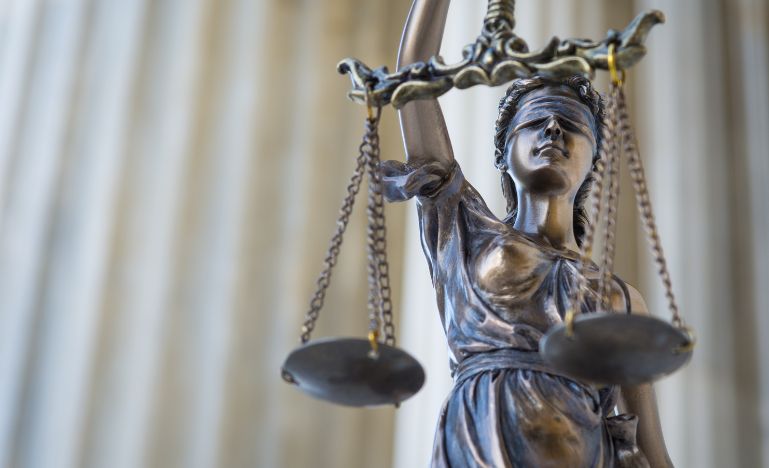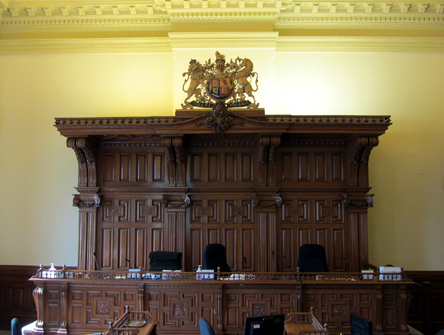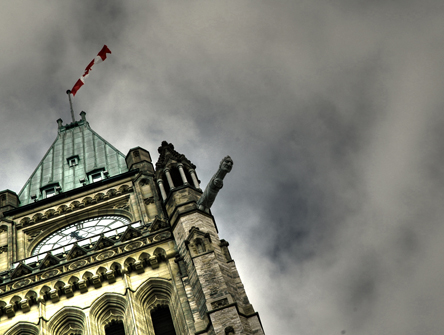Premier Ford’s judicial independence rant draws ire
Criticism of 'bleeding-heart judges’ who overrule the government prompts rare joint statement from Ontario’s three chief justices

No one thinks Ontario Premier Doug Ford’s description of judicial independence as a “joke” is funny, particularly the province’s three chief justices.
“Judicial independence is a cornerstone of our constitutional democracy. An independent judiciary protects the public, not just judicial officials. It means a society governed by the rule of law,” Chief Justice Michael Tulloch of the Ontario Court of Appeal, Chief Justice Geoffrey Morawetz of the Ontario Superior Court of Justice, and Chief Justice Sharon Nicklas of the Ontario Court of Justice said in a rare joint statement.
“Every Canadian has the constitutional right to have their legal issues decided by a fair and impartial judiciary,” it continued.“Our justice system is founded on public confidence that decisions, whether popular or not, are fully heard and fairly made. It is crucial that the judiciary is both actually independent and appears to be independent so the public can be confident that judicial decisions are made without bias.”
Their statement was in response to a rant by Ford last week about bail reform, during which he criticized “terrible bleeding-heart judges” for being “too soft on crime,” making decisions based on their “ideology,” and “overruling the government.”
“I can't wait until they retire,” Ford said. “Matter of fact, I'll pay them to retire earlier. I'll pay you out, for two, three, four years. Just get out of the system.”
He also floated the idea of electing instead of appointing judges.
"Last time I checked there hasn't been any judges elected. Maybe that's the problem — we should do what the U.S. does," Ford continued."Let's start electing our judges, holding them accountable, and that's my rant for the day, because I've just had it."
The Canadian Judicial Council says that public rhetoric against judicial independence and the judiciary undermines public confidence in the justice system, which can erode our fundamental democratic principles.
“Judicial independence exists for the benefit of citizens, to assure them that they will always be able to turn to the courts in the certainty that judges will not be subject to undue influence from public authorities or third parties,” Council spokesperson Krista Ferraro said in a statement.
“Judicial independence is fundamental to the maintenance of a free and democratic society.”
Ford’s comments also drew criticism from members of the legal profession.
CBA president Lynne Vicars says that in moments of uncertainty like the one Canada’s currently facing thanks to our southern neighbour, the country’s strength is measured by how it respects its institutions, especially those that keep powerful interests in check.
“Canada’s judiciary is not a political obstacle; it is a vital part of our constitutional system,” she said in a statement.
“Undermining (it) for political gain erodes public confidence, weakens Canada’s global standing, and fuels the kind of divisions that threatens our democratic foundations. These are not minor consequences. They compromise the sovereignty and cohesion that have defined Canada’s success as a constitutional democracy.”
Ontario Attorney General Doug Downey defended Ford’s comments about judicial independence being a “joke,” but clarified that the province is not considering U.S.-style election of judges.
Jula Hughes, dean of Lakehead University’s Bora Laskin Faculty of Law, says the rant was unwelcome because of what it says about constitutional principles.
“When the premier makes those kinds of comments, it is an assault on the constitutional framework, and that is not a helpful thing to be doing,” she says.
“There is enough uncertainty about what the constitution means and how we govern ourselves, so when he intervenes in this way, it doesn’t help people understand what is going on.”
The context of the comments, coming after Ford’s plans to remove 19 kilometres of protected bike lanes were on the receiving end of an injunction, also means the response was disproportionate because there are appeals that have not been exhausted.
The rant was spurred by talk of bail reform, when reasonable bail is a constitutional protection in the Charter.
“It’s not that the courts haven’t wrestled with the proper scope of the constitutionally protected right of bail, but it hinges again on the constitutional principle of the presumption of innocence,” Hughes says.
“What I find disconcerting about this is that there’s a degree of rhetoric being launched when we are having fairly everyday-type legal problems.”
While she agrees the system has some well-documented problems that people are spending time and energy trying to solve, including access to justice, which is a bigger problem than bail, by floating the idea of electing judges, Ford’s comments were disproportionate.
Boris Bytensky, president of the Criminal Lawyers’ Association, says Ford’s reference to appointing “like-minded judges” has not worked as he intended.
“Frankly, when you are appointed as a judge, you take an oath to apply the law, and judges almost always do that,” he says.
“I’m not aware of any statistics that show that any former Crown counsel is tougher on crime or less defence-friendly, and vice-versa. If you look at 50 former-Crown judges versus 50 former defence counsel-judges, I don’t think there’s a meaningful difference in their decision-making as a group.”
Bytensky doesn’t think it’s a good idea for politicians to weigh in like this. If they don’t like individual decisions, they should direct counsel to launch appeals, which is what appellate courts are for, not criticize the judiciary in the press.
“It does nothing to inspire confidence in the administration of justice, frankly, and if we don’t have the respect of the public in the judicial system, then that’s a very poor outcome to have,” he says.
It’s also counterproductive to appoint only Crown-side lawyers as judges because doing so depletes the Crown of talented prosecutors who can handle difficult cases and replaces them with less experienced prosecutors.
“If you’re talking about getting tough-on-crime outcomes such as convictions, you’re more likely to achieve those by having experienced prosecutors and not those who are new and less capable,” Bytensky says.
Ironically, Ford’s comments have obscured the potentially helpful changes his government is proposing to deal with bail, including specialized prosecutors who could help streamline hearings.
While some provincial and federal parties call for bail reform, Hughes says it’s not the first time.
“The downside of big changes has been fully documented because we used to have a system that was much more likely to keep people detained before trial, up into the 1970s, and nobody liked those outcomes either,” she says.
“We’re forgetting our own history.”
The difficulty with bail then and now is trying to evaluate future conduct quickly and early in the process when evidence is limited.
“Unfortunately, the reality is we do end up with wrong guesses, and that’s really terrible. But there isn’t a cure for that other than perfecting a crystal ball,” Hughes says.
On the flip side, there are downsides to incarcerating a lot of people waiting for trial who aren’t going to help anybody.
“It’s expensive for taxpayers, it makes it harder for people to defend themselves, and it leads to another outcome conservative governments don’t like, including sentencing discounts for time served,” she says.


